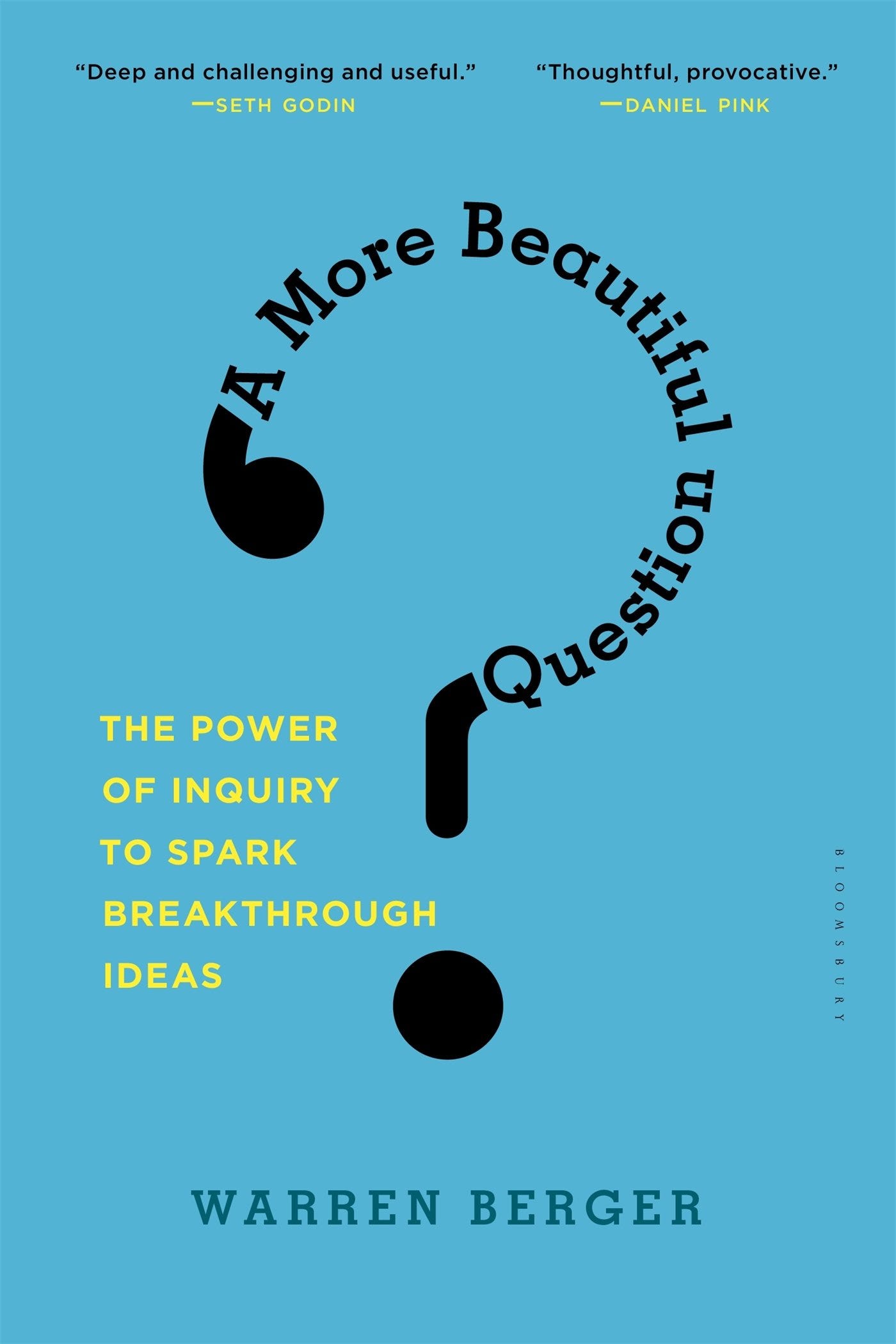
Life is a series of sprints.
It may look like a marathon, but only if you zoom out enough. Sometimes, you need to catch your breath, rest, reflect on where you came from and where you’re going next. The next sprint. And then do it all over again, but better.
I’ve been fortunate enough to stay healthy while “between jobs” during this pandemic. It felt like the right moment to reflect about the recent past, the more or less immediate future, and even some thoughts on the future of work and leadership. But another important conversation with ourselves is exploring the answer to the question, “what drives me?”
As with many great questions, the question itself is probably more interesting than the answer. But what I came to realize is that I’m less and less driven by goals. Rather, I’m looking for flow. I want to spend as much of my awake time as possible doing what I love to do, with people I love to work with, while making enough of a living.
Crazy, uh?
The reality is that it’s never been more plausible, and attainable, to live such life. It’s a golden online age where all the infrastructure is in place for anyone to be creative in a myriad ways, and sell directly to those who find value in it. Not easy, but what’s harder is tearing apart our own preconceived notions of what we can and cannot do.
“The noblest pleasure is the joy of understanding” — Leonardo da Vinci
So, what drives me? Two things, I realize.
The first is getting inspired by others who do great work. The sheer joy of knowledge, and the rush of figuring things out. Sometimes, I even have an unhealthy dose of FOMO that I’m trying to dial down. It may be because I left my home country a little late. Or because I’m 36 and already figured out I’m not going to live forever. Either way, it probably explains why I love podcasts like The Tim Ferriss Show (“deconstructing world-class performers”) or The Knowledge Project (“exploring the ideas, methods and mental models that help you learn from the best”).
This drive is what I would call “towards motivation”. What I’m attracted to.
The second drive is then “away from motivation” and it’s trickier. It involves imposter syndrome, insecurities and vulnerabilities. I suspect everyone feels the same way, to different degrees, though it’s (understandably) hush-hush. But if you’re reading this, I know that you know, and I know that you know that I know. So we’re good.
You see, as an engineering leader I’ve held stressful, high-responsibility jobs, where I had to wear many different hats. Everything is ambiguous, uncertain and, to be quite honest, often chaotic. There’s no real feedback loops. Good luck understanding if you’re doing a good job or not.
But here’s what I figured out. Every time I wasn’t my best self, there was a gap between the task or situation at hand, and my perception of how able I was to deal with it. The wider that gap, the more insecure I felt. When there’s little or no gap, I’m confident and I’m able to be my best self — kind and helpful.
The drive, then, is to close as many of these gaps as I can, to be my best self more of the time. Fortunately, it seems a number of principles explain everything in life across many disciplines. Some examples:
Spend less than you earn. Applies to money, trust, calories, etc.
The way to get lots of users is to make a great product. Applies to companies, personal creative writing, friendships, etc.
Great things happen when incentives are aligned. Applies to teams, societies, economics, etc.
That’s why I read and absorb as much as I can — to figure out for myself how the world works (people included, especially people) and get as far “away from” insecurity and helplessness as possible.
Does that make any sense to you? 🤔
Anyhow, I wanted to share that. Onwards to this week’s serving of brain food.
3 Articles ✍️
👉 Reflecting on My Failure to Build a Billion-Dollar Company
Keeping with the reflection theme, this is a great one. Sahil Lavingia was the 2nd employee at Pinterest and left a few years ago without vesting a single share (you can imagine how much that’s worth today) to pursue a labour of love. It’s just the journey turned out to be different from what he expected at first. Good example of being clear on who you’re truly accountable to, and the power of storytelling.
👉 Looking Back on Four Years at The Times
Nick Rockwell led the technology group at The New York Times for over 4 years. What I appreciate most about his retrospective is how clearly he describes the tech strategy, and how he doesn’t hesitate in admitting areas where he definitely wasn’t the smartest guy in the room. Any Engineering leader would benefit from reading this recap, as well as his interesting take on how to develop your culture like software.
👉 68 Bits of Unsolicited Advice
The best advice is that which makes you think. Also, I don’t think we learn enough from older people. As he turned 68, Kevin Kelly (founder of WIRED and generally super interesting guy) decided to dish out some “unsolicited” advice. Here’s one of my favourites: “Experience is overrated. When hiring, hire for aptitude, train for skills. Most really amazing or great things are done by people doing them for the first time.”
2 Podcasts 🎧
👉 Joe Rogan Experience #1309 - Naval Ravikant
Those close to me know that Naval has been hugely inspirational since I first came across him. To be honest, sometimes I’m undecided whether he’s spot on or full of shit. But that’s what makes him provocative. And the many things that resonate, they really resonate. If you don’t know Naval yet, you’re in for a treat with this appearance on the Joe Rogan Experience podcast.
👉 Claire Hughes Johnson: How Stripe's COO approaches company building
Stripe fascinates me as a company, and I pretty much love everything I know about it. Their mission of increasing “the GDP of the Internet” is as original as it is important, and they have become critical infrastructure, powering so many small and medium businesses. To me, Claire Hughes Johnson is a prime example of what being a great executive is: ultra competent and inspirational. I have learned immensely from her.
1 Book 📚
“Don’t think about why you question, simply don’t stop questioning. Don’t worry about what you can’t answer, and don’t try to explain what you can’t know. Curiosity is its own reason…” — Albert Einstein
Why do children ask questions all the time? Why do they seem to come equipped with a built-in “root cause analysis generator” that asks Why? over and over about everything under the sun? And why do we seem to lose that capacity as we grow?
One possible explanation is that school slowly beats it out of us. Instead of focusing on actual learning, the focus is on grades, passing tests, and all the expectations that come with it. The lingering consequence is that we wonder less about how things really are. Our perspective narrows and our curiosity dims.

When we grow older and life gets complicated, that skill we once possessed reveals itself to be critical. So we need to brush up on it, if we want to be “successful”. In A More Beautiful Question, Warren Berger tells a number of stories illustrating the power of asking great questions using a simple 3-part framework, the “Why-What If-How” model, that guides effective inquiry.
For example, during a family vacation in 1943, Edwin Land’s daughter asked why they had to wait to see the picture they had just taken. This sparked a question in Land’s mind: “what if you could somehow have a darkroom inside a camera?” That in turn led him to ask how he could apply chemicals inside the camera itself and solve a host of other associated technical challenges. Five years later, Land’s company, Polaroid Corporation, came out with the first commercial instant camera.
Maybe I don’t consciously use this exact framework on my day to day, but I definitely try to force myself to ask better questions, not only to others but especially of myself. For example:
Am I working on the right problem?
How do I know I’m right?
How is this other person perceiving what I’m saying right now?
The same applies to teams and companies. Those who ask better questions tend to stack the odds of success much more in their favour. This is exactly why creating an environment where people feel truly safe in asking questions, without being seen as either dumb or threatening, is paramount. You ignore it at your own peril.
I read Berger’s book a few years ago, but two things stuck with me. One is that a great question can shift the way we perceive or think about something. Exploring with an open mind and connecting seemingly unrelated dots can open incredible doors.
The other revelation is that a good question can lead to a decades-long search and spark whole new fields of inquiry. But answers often end the process.
“Why?” is a good question. But what if we ask instead “Why not?”. How would that work out?
“To ask is a temporary shame, not to ask a life-long shame.” (Japanese proverb)
🙌🏽 Thank you for reading! I hope you enjoyed it, and until next week.
👉 You can follow me on Twitter @prla and subscribe to this newsletter here.



